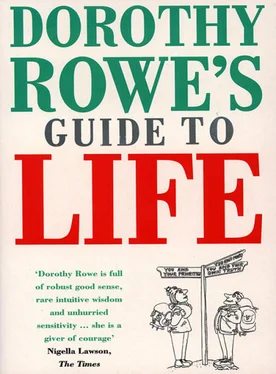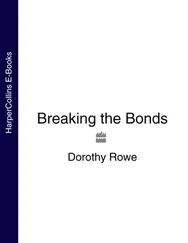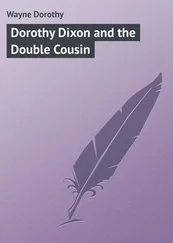Dorothy Rowe - Dorothy Rowe’s Guide to Life
Здесь есть возможность читать онлайн «Dorothy Rowe - Dorothy Rowe’s Guide to Life» — ознакомительный отрывок электронной книги совершенно бесплатно, а после прочтения отрывка купить полную версию. В некоторых случаях можно слушать аудио, скачать через торрент в формате fb2 и присутствует краткое содержание. Жанр: unrecognised, на английском языке. Описание произведения, (предисловие) а так же отзывы посетителей доступны на портале библиотеки ЛибКат.
- Название:Dorothy Rowe’s Guide to Life
- Автор:
- Жанр:
- Год:неизвестен
- ISBN:нет данных
- Рейтинг книги:3 / 5. Голосов: 1
-
Избранное:Добавить в избранное
- Отзывы:
-
Ваша оценка:
- 60
- 1
- 2
- 3
- 4
- 5
Dorothy Rowe’s Guide to Life: краткое содержание, описание и аннотация
Предлагаем к чтению аннотацию, описание, краткое содержание или предисловие (зависит от того, что написал сам автор книги «Dorothy Rowe’s Guide to Life»). Если вы не нашли необходимую информацию о книге — напишите в комментариях, мы постараемся отыскать её.
Dorothy Rowe’s Guide to Life — читать онлайн ознакомительный отрывок
Ниже представлен текст книги, разбитый по страницам. Система сохранения места последней прочитанной страницы, позволяет с удобством читать онлайн бесплатно книгу «Dorothy Rowe’s Guide to Life», без необходимости каждый раз заново искать на чём Вы остановились. Поставьте закладку, и сможете в любой момент перейти на страницу, на которой закончили чтение.
Интервал:
Закладка:
Interpretations are choices.
A friend who had had a Catholic upbringing and so saw herself, her life and her world as an unchangeable part of the Absolute, Eternal Truths of the Catholic Church told me that the best thing she got from therapy was learning that she had choices.
You can always change your choice.
You might initially interpret your illness as, ‘This is God’s punishment for my wickedness’ but later think, ‘That’s silly’ and decide upon, ‘I won’t let this beat me.’
Having made one interpretation you then interpret your interpretation.
Interpreting your illness as God’s punishment might lead you to further interpretations such as, ‘I deserve this punishment,’ or, ‘I must be good and accept my punishment and not do anything to get better.’ Deciding that your illness is a challenge to be mastered might lead you to interpret this as, ‘I’ll do everything I can to get better,’ or, ‘I’ll get on with my life as normal.’
Life has many paradoxes.
A paradox is not a problem.
A problem is a question which, in theory at least, is capable of being answered.
A paradox is a seeming contradiction which nevertheless contains an element of a truth.
A PARADOX OF LIFE
Even though we can never know reality directly, to survive and flourish we must always strive to make interpretations that are as close to reality as possible.
For instance, suppose you’re about to cross a busy road. You can’t possibly know the exact speed of approaching traffic, but to cross the road safely you must judge the speed of the traffic as accurately as possible. How do you make this judgement?
Suppose a friend who is a very successful stockbroker advises you to put your savings in shares that, he says, are sure to increase in value. How do you judge the likelihood that what he says is true?
We create new interpretations out of the interpretations we have already acquired. We have nothing else to use. We might decide not to bother with sorting through these old interpretations to create something new and just run out on to the road or impulsively give our money to the stockbroker. Or we might think carefully about our past experiences, contrasting one with another, and compare our past interpretations with our present observations to be as sure as we can that our new interpretation is as good an interpretation of reality as it can be. We can compare the speeds of a number of passing cars, or do some research about current stock prices.
Although we might know about many alternative ways of interpreting some aspect of reality, we each can have our own favourite way of interpreting that aspect.
However, our favourite ways of creating our interpretations can result in interpretations which are far from reality.
For instance, we all know that envelopes come in many sizes and colours. Some people, however, when inspecting their mail, see and open white and coloured envelopes but never see, much less open brown envelopes. Yet unpaid bills don’t disappear into thin air.
We need to be aware how one group of our wishes can dominate all our interpretations. We can choose to see only what we wish to see and thus do only what we wish to do. However, our wishes might not be an accurate reflection of reality, particularly that part of reality which is composed of other people’s interpretations. We forget that other people see things differently from us.
You must have noticed that no two people ever interpret an event in exactly the same way. You interpret a television programme as being excellent. Your friend thinks it’s rubbish. This is not a matter of other people being mad, bad or awkward. It is an inescapable part of the way we are physically constituted.
Each of us, every moment of our lives, asleep or awake, is engaged in interpreting what is happening.
Each of us has only one source we can draw on in creating our interpretations.
This is our past experience.
No two people ever have the same past experience.
Identical twins might begin life with the same genetic components, but life in the womb differs for each of them, one is born after the other and from the moment they are born they have different experiences.
To the extent that two people create similar interpretations they can communicate, but even when two people speak the same language they create very different interpretations. Thus two people can live side by side, speak the same language, yet each interpret the world in totally different ways. It’s often said, for instance, that men and women inhabit different planets!
So here we are, each of us in our own little world of interpretations, yet, at the same time, we are born social animals.
We are physically constituted as social animals.
When you were born you didn’t just search around for a food-bearing nipple. You also searched for a friendly face. You were born knowing how to recognize a face and preferring to look at a face than at anything else.
If a friendly face hadn’t turned up for you to talk to, you wouldn’t be reading this now. Without a friendly face, even if you’d been adequately fed and kept warm, you would have either died in the first few weeks (it’s a condition known as ‘anaclitic depression’) or you would have gone on to become one of those strange individuals who are unable to see other people as being in any way different from other objects.
Out of the bond we develop with a mothering person in our own first months of life grows our sense of right and wrong, guilt and reparation. Babies who don’t get the chance to develop this bond grow up to be conscienceless people. They might lead apparently quite ordinary lives, whether criminals or company directors, but their personal relationships are always a disaster.
A PARADOX OF LIFE
We are each a unique individual living in our own individual, self-created world, yet we need one another in order to survive.
The interpretations we create don’t just exist on their own. They arise out of the set of interpretations we have created in the past and they also determine how we think, feel and act.
Whatever we think, feel and do has endless consequences.
This is another aspect of life which we cannot change.
It has to do with the nature of reality.
Whatever reality is, it does seem that it is a vast, ever-changing interconnectedness. Everything is constantly moving and everything is connected to everything else. Physicists say this, and so did the ancient Hindu, Taoist and Buddhist philosophers.
Because everything is connected to everything else,
All our acts have consequences.
Don’t kid yourself that what you do will have no consequences, or very limited consequences, or that you can decide what the consequences will be. A father might say, ‘I caught my son stealing. I gave him a good hiding and that was the end of it’, but he is deluding himself. The father’s actions will have consequences beyond the father’s control as a result of how the son interprets what his father has done.
Everything you do has consequences and these consequences spread in all directions and go on forever.
A PARADOX OF LIFE
Everything that happens has good consequences and bad consequences.
For instance, you win the lottery.
Good consequences : You give up working and plan a round-the-world luxury voyage.
Bad consequences : Your entire family comes too.
Remember that ‘good’ and ‘bad’ are not Absolute and Eternal Judgements existing outside our human life. We each have our own interpretation of good and bad. Some people believe that lotteries are wicked. Some people wouldn’t want to go anywhere without their family.
Читать дальшеИнтервал:
Закладка:
Похожие книги на «Dorothy Rowe’s Guide to Life»
Представляем Вашему вниманию похожие книги на «Dorothy Rowe’s Guide to Life» списком для выбора. Мы отобрали схожую по названию и смыслу литературу в надежде предоставить читателям больше вариантов отыскать новые, интересные, ещё непрочитанные произведения.
Обсуждение, отзывы о книге «Dorothy Rowe’s Guide to Life» и просто собственные мнения читателей. Оставьте ваши комментарии, напишите, что Вы думаете о произведении, его смысле или главных героях. Укажите что конкретно понравилось, а что нет, и почему Вы так считаете.












